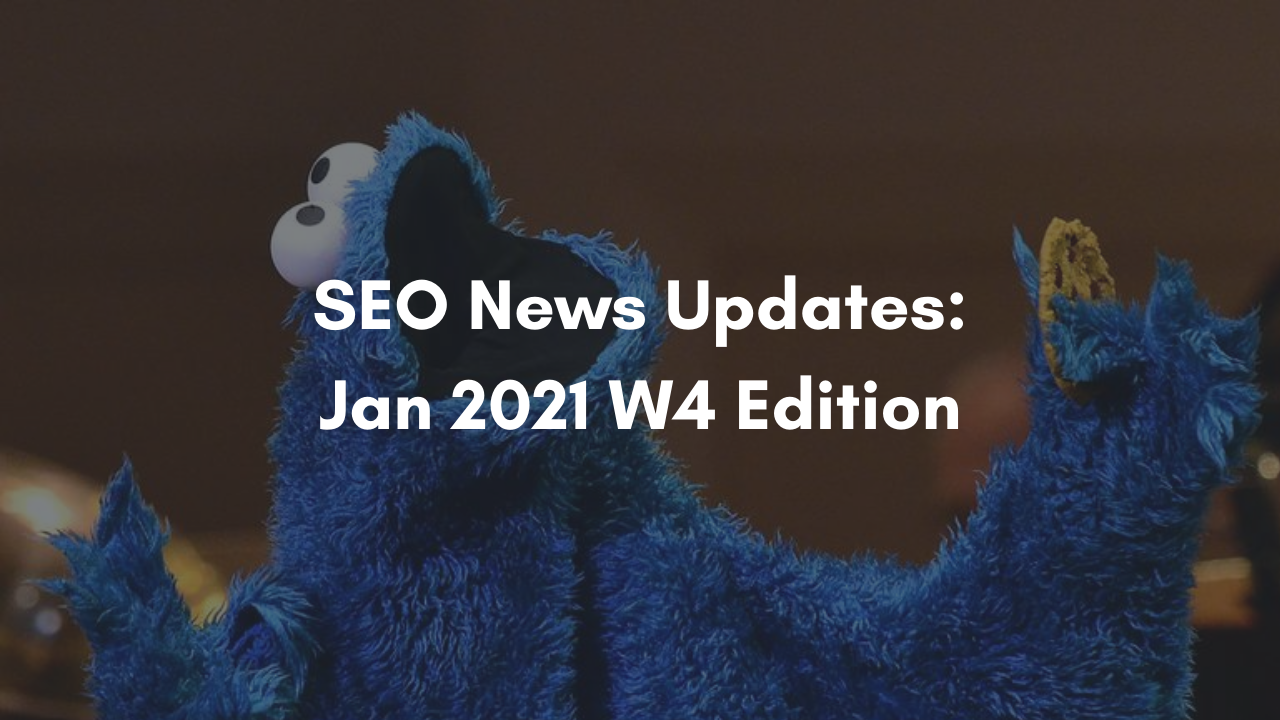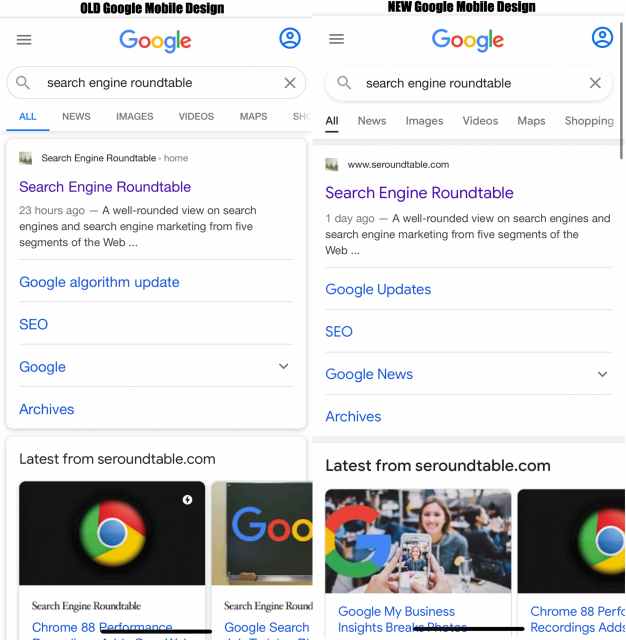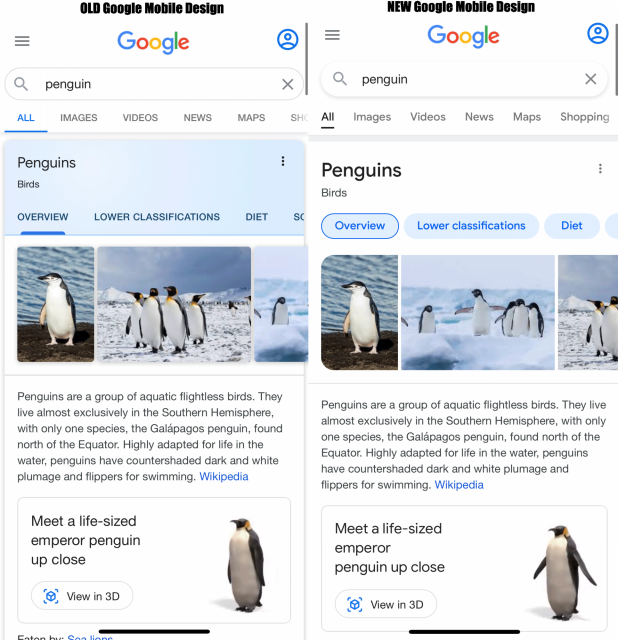Steph W. from SEOPressor


...help you check your website and tell you exactly how to rank higher?


99
score %
SEO Score

Found us from search engine?
We rank high, you can too.
SEOPressor helps you to optimize your on-page SEO for higher & improved search ranking.
By vivian on January 29, 2021

Hey there, SEO Peeps! It’s Friday again and it’s time for another weekly dose of SEO News. Here’s a quick roundup of what’s important:
Read on to get the details and actionable advice.
Google recently announced the rollout of its new mobile search results design. If you have a look, you will realize that the results are cleaner, simple, and offer a more modern experience.
The search engine explained that the design is intended to make it easier to read the search results and here’s a quick comparison between the current and old mobile SERPs.


So this was reported back in November, but it looks like Google is still testing showing links in a featured snippet that links to a third-party website.
This was shared by Brian Freiesleben for the query “meerkat lion king 2019 voice”. As you can see in the results below, there are dotted lines beneath certain entities which are further explained in a snippet.
This, however, from an SEO point of view, is less desirable as it can easily divert user’s attention away from the ranking snippet and click on these links instead.
John Mueller of Google was asked by Michael Lewittes during SEO office Hours if those news websites you see overlay those call-to-actions that ask users to sign up for their newsletter before seeing the content will have any effect on their Google rankings?
The answer as it turns out is yes, John Mueller said they would see the mobile interstitial penalty which happens when there are intrusive interstitials.
However, John also kind of admitted, that the mobile interstitial penalty which was rolled out back in 2017 only has a minimal impact on sites.
He said in the hangout “Sometimes the tricky part there is with these slight demotions it’s not the case that we’ll remove the site from search or we’ll kind of like move it to page 100 or something like that. But if it’s really relevant content then maybe we’ll still show it on the first page of the search results just not like as highly as it could be. “
And this can be a detrimental factor giving the competitiveness of rankings for Google’s Top 10 results. So we certainly advise you to take this into consideration.
Google has revealed an alternative to cookies named FLoC, which stands for Federated Learning of Cohorts.
So FLoC basically clusters large groups of people with similar interests. And according to Google, this data is gathered in the browser, which means it is not stored anywhere.
It is the data from the wider cohort, “the crowd” of thousands of people that are shared. It looks at the group and analyzes the data, which is then used to target ads to those individuals in the crowd and at the same time creating a hidden individual among the crowd.
Google said, “FLoC can provide an effective replacement signal for third-party cookies.” Adding that its “tests of FLoC to reach in-market and affinity Google Audiences show that advertisers can expect to see at least 95% of the conversions per dollar spent when compared to cookie-based advertising.”
This is a pretty huge claim, so do check out this new FLoC and you can learn more from this codebase resource for FLoC that Google has open for all to see on Github
Google My Business seems to be adding to the Insights section new metrics that businesses can use for analytical purposes.
The new metrics are called platform and device breakdown that shows you the devices people used to find your business in Google Search or Maps.
It is yet to be fully rolled out and here is a screenshot from Golan Nielsen on LocalU which shows how Google breakdown the data:
As you can see, GMB views are currently divided into:
Moving forward, it also seems that Google will be adding directions, bookings, and website clicks to these new Google My Business Metrics.
Despite the pandemic and there has been just less foot traffic, this is something you want to look and subscribe to for the long haul.
It looks like Google has stopped displaying rich results review snippets for attorneys and lawyers in the Google search results.
Joy Hawkins showed a screenshot comparing Google organic results on January 10 & January 26, and it looks like Google has removed the gold stars from the review.
This was most likely removed as most reviews are now spammy or curated and no longer helpful. But so far, we see this drop only among the legal professions and time will tell us how this will roll out.
Google posted on the Google blog that it will try to no longer show “teaser” based web stories in Google Search and Google Discover.
Paul Bakaus from Google wrote “A critical ranking signal at Google is the quality of your content. And a one- or two-page teaser for your blog post doesn’t tell a satisfying story to a reader, so Google will do its very best to not show these to users.”
Google said it has been noticing “folks try out is teaser content: Web Stories that are essentially advertisements for some other content, like a blog post or full-length video.”
But he said web users are telling Google “this isn’t what they want” from the Web Stories. Instead, they want Web Stories that “tell a full story and aren’t used to tease other content.”
On a side note, here’s a really interesting web story by Suzuki Kenichi that shows how web stories are benefitting SEO. Do check it out!
Mark Williams-Cook posted an interesting example of Google Search showing a different set of ranked results for the same query.
The only difference was how the search was conducted but as it turns out, Google ranks them pretty differently.
One search was done as a query, typing in the words into the search box; while the second was selecting the entity in the search suggestions drop-down box. Here’s the story.
Google responses:
John Mueller explains that “there can be a slight difference between entity & query, at least as far as I understand it.” He said it is likely a bug and filed the bug report.
Meanwhile, Gary Illyes came in and suggested “it’s probably an entity lag.” He later said there is no such term at Google as “entity lag,” and that he made it up on the fly but it does have a ring to it. Entity lag!
Have you spotted any differences like this, if you do, please share them down below.
Plus, that folks also mark the end of this week’s SEO news, stay tuned next Friday, and have a wonderful weekend!
Updated: 24 February 2026


Save thousands of dollars (it’s 100x cheaper)

Zero risk of Google penalty (it’s Google-approved)

Boost your rankings (proven by case studies)
Rank High With This Link Strategy
Precise, Simplified, Fast Internal Linking.
